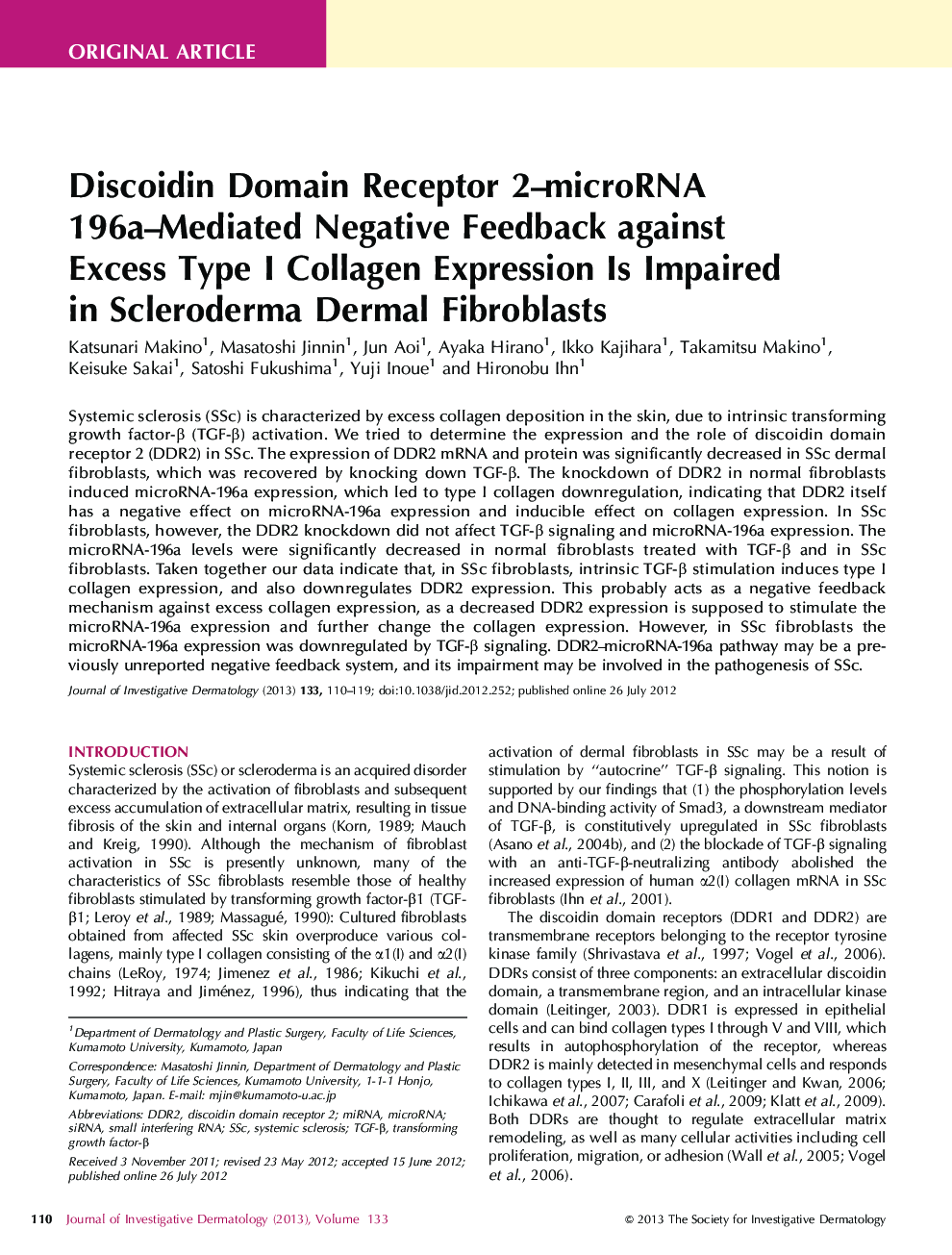| Article ID | Journal | Published Year | Pages | File Type |
|---|---|---|---|---|
| 3215479 | Journal of Investigative Dermatology | 2013 | 10 Pages |
Systemic sclerosis (SSc) is characterized by excess collagen deposition in the skin, due to intrinsic transforming growth factor-β (TGF-β) activation. We tried to determine the expression and the role of discoidin domain receptor 2 (DDR2) in SSc. The expression of DDR2 mRNA and protein was significantly decreased in SSc dermal fibroblasts, which was recovered by knocking down TGF-β. The knockdown of DDR2 in normal fibroblasts induced microRNA-196a expression, which led to type I collagen downregulation, indicating that DDR2 itself has a negative effect on microRNA-196a expression and inducible effect on collagen expression. In SSc fibroblasts, however, the DDR2 knockdown did not affect TGF-β signaling and microRNA-196a expression. The microRNA-196a levels were significantly decreased in normal fibroblasts treated with TGF-β and in SSc fibroblasts. Taken together our data indicate that, in SSc fibroblasts, intrinsic TGF-β stimulation induces type I collagen expression, and also downregulates DDR2 expression. This probably acts as a negative feedback mechanism against excess collagen expression, as a decreased DDR2 expression is supposed to stimulate the microRNA-196a expression and further change the collagen expression. However, in SSc fibroblasts the microRNA-196a expression was downregulated by TGF-β signaling. DDR2–microRNA-196a pathway may be a previously unreported negative feedback system, and its impairment may be involved in the pathogenesis of SSc.
